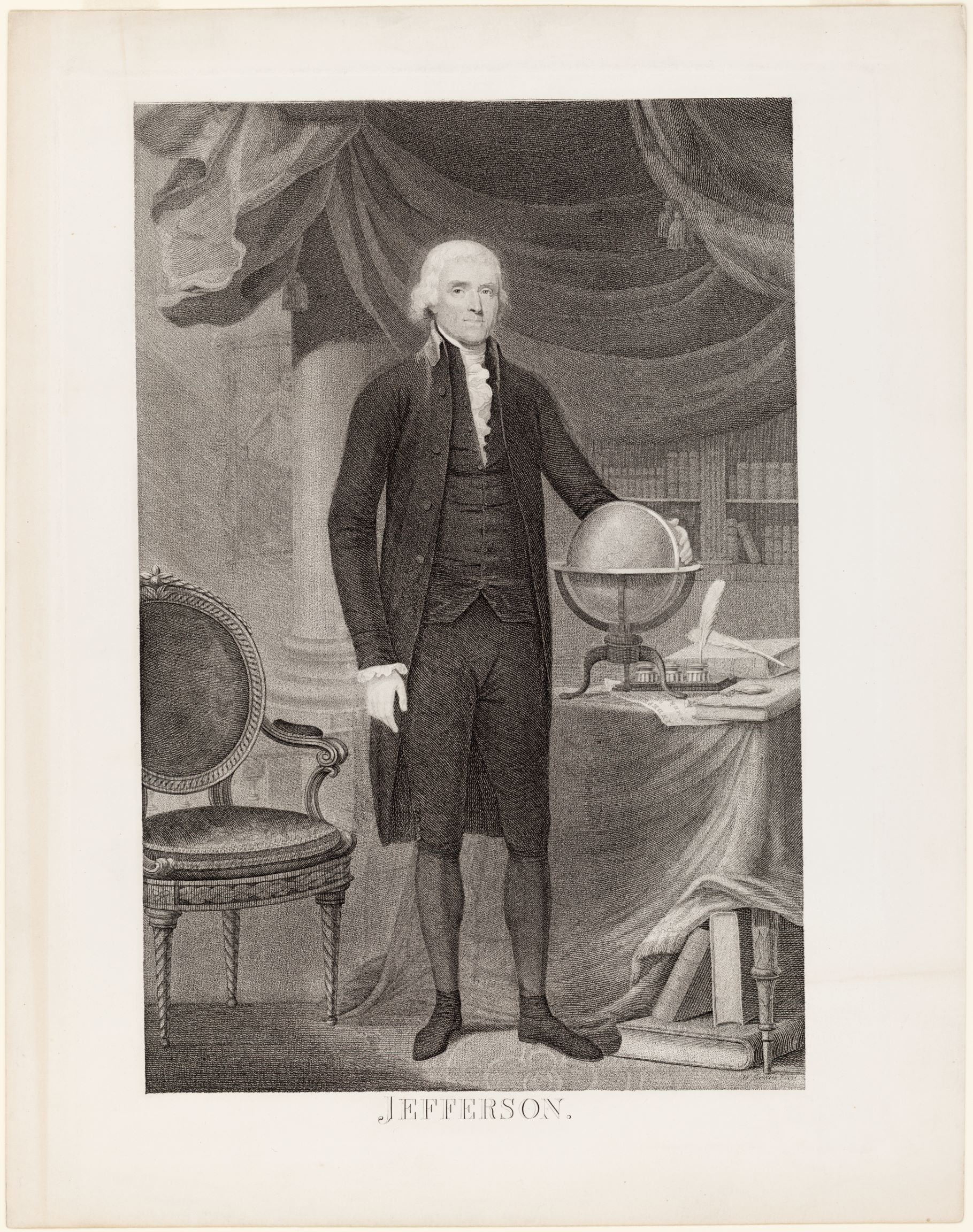Liberty Matters
The Historian’s Questions

Hans Eicholz, Christine McDonald, and Todd Estes have each written about fascinating issues dealing with various aspects of Thomas Jefferson’s thought. In reading the work of McDonald and Estes, I have gained new insight into Jefferson’s perspective on the Constitution and into his religious views during his final days. In my own contributions to this conversation, I have chosen to focus on the topic of Jefferson and slavery—partly because that is my own chosen area of research, and partly because in any discussion of Jefferson (and most other American Founders) I have ever had, the twin concerns of slavery and hypocrisy inevitably emerge. It seems impossible, in other words, to evaluate any aspect of Jefferson’s life and work without also addressing, in some manner, these most troubling and complex of issues.
In his analysis of my first essay, Eicholz posed a great question for historians to consider: “Is it our objective to judge the past, or to understand it?” For scholars and American citizens alike, when looking at documents such as the Declaration of Independence, merely understanding the past is not sufficient. The words live; they are not relegated to the lives of generations long gone, but rather to the memories, identities, laws, and future hopes of current generations. And because Jefferson wrote those words, and so many other important foundational American documents (e.g. the Bill for Establishing Religious Freedom), he invites criticism and debate beyond the level of most other historical subjects.
As Eicholz rightly observes, modern historians understand themselves as obligated to certain standards of objectivity. For the historian to presume to have moral judgements regarding the beliefs or actions of historical subjects is indeed risky, not least because of the potential subsequent loss of credibility. Moreover, to ask whether Thomas Jefferson could, or should, have done “more” to end the institution of slavery is to enter not only the nebulous world of counter-factuals, but also to ask readers to speculate regarding what that “more” could look like. Would “more” mean living up to some standard of the Revolutionary Age? Of the early 1800s? Of today? Why should the historian raise such a question, anyway?
Jefferson did not train as an historian, but he may have had an opinion on this very topic. While completing his college readings on enslaving prisoners of war—specifically, in Henry Home, Lord Kames’s 1751 Essays on the Principles of Morality and Natural Religion—Jefferson made a marginal notation regarding what he perceived to be “a remarkeable [sic] instance of improvement in the moral sense.” Among the ancient “savage” nations, Jefferson noted, POWs were routinely executed. Later, nations such as the Greeks had developed their moral principles such that POWs were enslaved, rather than killed. Jefferson observed that during his own time, “it is perceived we have no right to take the life of an enemy unless where our own preservation renders it necessary”—and yet, after a battle was over, victors still demanded a ransom before freeing POWs. Just “one advance further” in moral standards would, Jefferson predicted, result in ending ransoms altogether. For Jefferson, morality was inevitably tied to rights; the right of an individual to his life and labor was inherent and did not disappear merely because of a lost battle. What did change, over time, was a society’s ability to perceive and value those inherent human rights.[1]
Americans today do not all share the same moral or ethical standards; they do not even agree on the existence of natural rights. But—largely because of figures like Jefferson—what does remain within the bulk of American society is a firm insistence regarding the right of an individual to his or her freedom. When any person’s right to freedom is revoked, a lengthy legal process takes place first, and the court’s decision is subject to debate and appeal. Many of us could not, perhaps, articulate why such processes are necessary, or why our modern society has such visceral reactions to perceived unjust incarcerations. Our prejudice in favor of freedom goes unexamined; our rights are seldom questioned; this is just the way things should be. We are living in the future society that Jefferson imagined, and most of us don’t even realize it.
Understanding Thomas Jefferson—within the context of his own times—is a necessary precursor to understanding our own times. One step further is the process of attempting to understand the consequences of what Jefferson did, and did not, do when it came to his own moral values—moral values that remain relevant to American culture. This attempt to understand—to judge—does inevitably involve ethical and philosophical questions, but because so much of the world we now live in is built upon the words and deeds of men like Jefferson, those questions must be asked. Perhaps these questions are not within the purview of the historian’s craft, but they will always be within the purview of human beings and citizens. If historians want to engage with a wide audience, keeping the study of history relevant, they must at least pose the questions, inviting speculation—while keeping the context of history at the center of debate.
Endnotes
[1] E. Millicent Sowerby, comp., Catalogue of the Library of Thomas Jefferson, 5 vols., 2nd ed. (Charlottesville: University of Virginia Press, 1983), 2:11–12.
Copyright and Fair Use Statement
“Liberty Matters” is the copyright of Liberty Fund, Inc. This material is put on line to further the educational goals of Liberty Fund, Inc. These essays and responses may be quoted and otherwise used under “fair use” provisions for educational and academic purposes. To reprint these essays in course booklets requires the prior permission of Liberty Fund, Inc. Please contact oll@libertyfund.org if you have any questions.